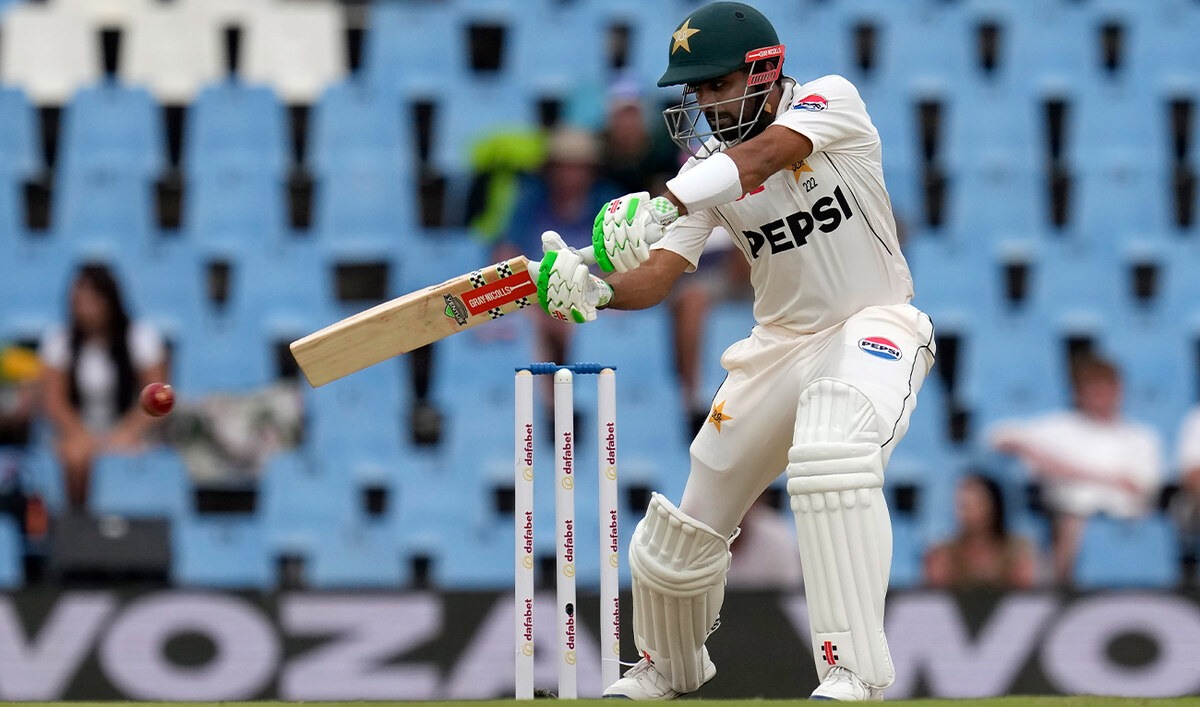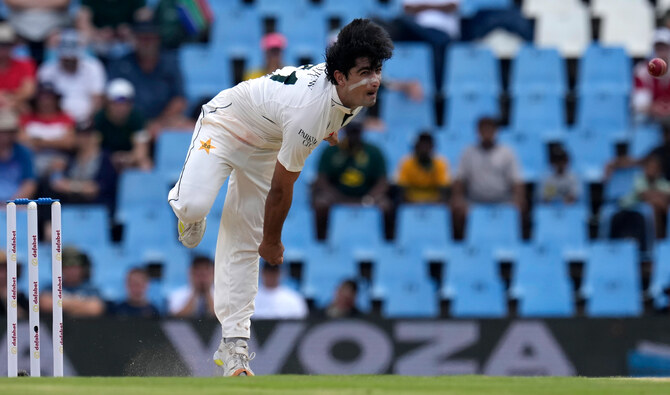ISLAMABAD: Pakistan Cricket Board (PCB) chairman Ramiz Raja responded to critics on Wednesday regarding the batting-friendly Rawalpindi pitch during the first Test match against Australia while asking them not to “jump the gun” since the upcoming contests would have plenty of exhilarating cricket.
The first match of the Pakistan-Australia Test series in Rawalpindi left many fans disappointed after it ended in a draw. The flat track had a lot to offer to batters, though bowlers on both sides were found struggling.
Pakistan’s information minister Chaudhry Fawad Hussain also criticized the PCB for preparing a “dead pitch” for the “historic” match, saying on Twitter that he was “extremely disappointed” by the outcome of the match.
Pakistan declared at 476/4 while Australia were dismissed at 459 runs in the first innings. The hosts scored 252 without a loss in the second innings before all five days of the match were consumed and the contest ended in a draw.
“Only one match has taken place [until now] so don’t jump the gun,” said the PCB chairman in a video message disseminated through the board’s social media accounts. “A lot of cricket is still left [in the series].”
Raja acknowledged that Pakistan needed to “massively redo” its pitches. However, he recalled that Pakistan’s cricket season had already started when he was appointed to his current position last year and it was not possible for him to immediately focus on the task.
He informed the PCB was working on transforming Pakistani pitches, adding that soil experts would work on them once the cricket season was over.
“We will redo 50-60 pitches all over Pakistan … once our [cricket] season ends in March or April,” he added.
Raja said while he understood fans’ frustration at the first Test match ending in a draw, he added the PCB did not want to “play into Australia’s lap” by making bouncy pitches “just for the heck of it.”
He maintained that Pakistan’s opening pair of bowlers had been disturbed due to Hassan Ali and Faheem Ashraf’s injuries.
The PCB chairman also pointed out that Pakistan went into the first Test with a “brand new” opening pair, considering Abdullah Shafique had played only a few Test matches and Imam-ul-Haq was just returning to the squad.
“So, when your opening bowling and batting pairs are disturbed, you take chances accordingly,” he said. “We didn’t even have a leg-spinner as Yasir Shah was unfit. We went into the Test match as an under-sourced squad of 15 men.”
Defending the need for batting-friendly pitches, Raja described Australia as the “powerhouse” of modern cricket, adding they were coming to Pakistan after decimating England in the Ashes series.
“We couldn’t have gone into an experimental mode so quickly,” he said while pointing out that Pakistani batters performed well despite the outcome of the first Test.
“Fans need to understand that we will try our best to make this a result-oriented series, but we can’t wave a magic wand to make pitches green at once,” he said, adding that Pakistan needed to defeat Australia and adopt a strategy with caution to make that happen.
“The strategy that makes sense [for this series] is that there should be low bouncy tracks, where reverse swing, bowled out and lbw decisions come into play,” he added.





















